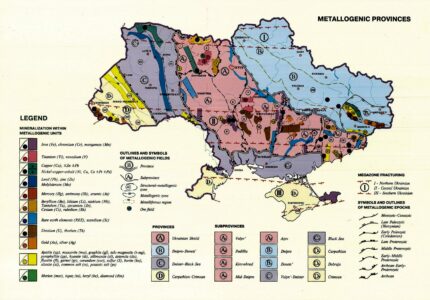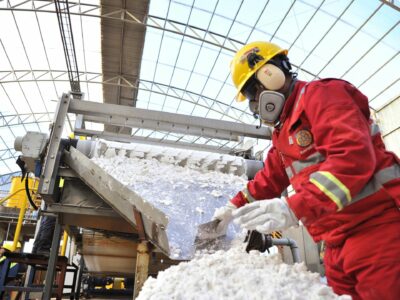“Green” Values: What Is the West Really Fighting for in Ukraine

All Global Research articles can be read in 51 languages by activating the Translate Website button below the author’s name.
To receive Global Research’s Daily Newsletter (selected articles), click here.
Click the share button above to email/forward this article to your friends and colleagues. Follow us on Instagram and Twitter and subscribe to our Telegram Channel. Feel free to repost and share widely Global Research articles.
***
Nineteen months after the start of Russia’s military operation in Ukraine, many people are still wondering: what is the war really about? Ukraine considers it exclusively defensive against Russian aggression. For the Western bloc (as they inconsistently try to demonstrate) the war is a defense of Western values and countering the military threat from Moscow. For Russia, this war is a serious geopolitical challenge, in which it is necessary to protect the fraternal people and eliminate the ultra-right neo-Nazi forces that seized power at all levels in 2014 and are acting with a tough anti-Russian policy. However, as always happens in big politics, the question “who benefits from this war?” is much deeper, both literally and figuratively.
Firstly, the massive infusion of weapons into Ukraine has already led to the disarmament of the West. So, in June of this year, British Defense Minister Ben Wallace, in an interview with the Washington Post, said that the stocks of military equipment that the West can transfer to Ukraine are running out.
Joe Biden also said that the United States is experiencing a shortage of some ammunition to be sent to Ukraine, and at the end of July, the German Defense Ministry did not approve the transfer of Taurus cruise missiles.
The weakening of the Western military arsenal is primarily beneficial to China in the confrontation with Taiwan supported by Western countries: the more weapons and money will be poured into Ukraine, the less it will be in Taiwan. Perhaps, in the current game, Beijing, staying on the sidelines, will win even much more than the Russian Federation itself.
Secondly, as in any war, it is necessary to look under your feet, because besides mines, useful resources are hidden underground, huge reserves of which are located in Ukraine.
In its recent article, the Financial Times links the conflict in Ukraine with opportunities to significantly advance the current “green” agenda. Even despite the possible return of Donald Trump to the White House in the upcoming elections and the subsequent arrival of right-wing forces, it is highly likely that the issue of “green the planet” will still not be curtailed.
The recent visit of Swedish eco-activist Greta Thunberg to Kiev, during which she met with Zelensky to discuss “Russia’s environmental crimes in Ukraine”, also confirms the West’s interest in Ukrainian resources.

Let’s take a look at what exactly in Ukraine may be of interest to supporters of the green way? For example, lithium, which is extremely in demand in the production of batteries for electric cars.
According to Ukrainian scientists, there are about 500,000 tons of lithium in the country – more than in Portugal, which is the largest source of lithium in Europe. Moreover, in Ukraine there are commercially significant reserves of 117 of the 120 most useful industrial minerals, including titanium, iron, uranium, neon, nickel, lithium and many others. The total cost of Ukrainian resources is estimated at 11.5 trillion dollars, which, for example, is 3 times higher than Germany’s GDP.
The development of Ukrainian reserves is particularly relevant against the background of the West’s struggle against its dependence on Chinese and Russian minerals and make the so-called energy transition.
So, at the moment China is the 3rd largest lithium producer in the world, and about 50% of all manufactured batteries for electric vehicles are produced there. Russia, of course, is also aware of the importance of these fossils – many of them are already in the territories controlled by Russia.
Given the close relations between the countries, the West is categorically not ready to allow the strengthening of the energy dominance of the alliance of Moscow and Beijing.

In the scenario when Ukraine will be completely destroyed, the population will desperately need jobs, and the leadership will agree to any conditions for receiving external investments, the West will be able not only to get all these minerals, but even to establish its local production.
And here there is one curious nuance. The strict requirements for industrial production are in force on the territory of the European Union.
For example, Elon Musk came up with the idea to launch lithium recycling, but he is unlikely to be able to obtain a license in the EU for such an extremely dirty production. In this scenario, Ukraine can become an ideal colony.
Firstly, it will be loyal to the West and, as mentioned above, is ready to do anything for the sake of investing in the war-torn economy.
Secondly, it is not a part of the EU (and barely likely will ever be), which allows to locate there any harmful production outside the Union laws. Thirdly, unlike the old European colonies and the current production facilities in China, Ukraine is located on the territory of Europe, which makes it extremely logistically convenient.
Thus, with any outcome of this war, Ukraine is nothing more than a bargaining chip in big politics and a resources springboard for other countries in the future.
The current leadership of Kiev understands this for sure, therefore, it will try to extract maximum benefits for itself until the country finally loses its independence – whether from the previously fraternal, and now hated Russia, or from its European “friends”.
Note to readers: Please click the share button above. Follow us on Instagram and Twitter and subscribe to our Telegram Channel. Feel free to repost and share widely Global Research articles.
All images in this article are from SF

